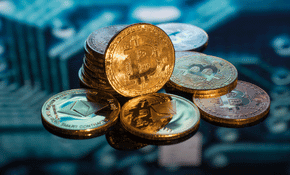Some countries stand out as resilient against organized crime and money laundering in the global financial integrity landscape. According to the Global Organized Crime Index, the countries with the lowest rates of money laundering are Finland, Estonia, France, Iceland, and Ireland. Even though these countries have relatively low criminality rates, it's important to recognize that not having a high-risk rating does not mean that money laundering issues are completely unaffected. Each country faces a distinct set of challenges, ranging from tax fraud to financial crimes enabled by cyberspace, highlighting the complex nature of the continuous fight against illicit financial activities.
| JURISDICTION |
OVERALL SCORE |
| Finland |
8.50 |
| Estonia |
8.00 |
| France |
8.00 |
| Iceland |
8.00 |
| Ireland |
8.00 |
(Criminality score: 2.98, Resilience score: 8.63, AML: 8.50)
The Global Organized Crime Index states that Finland has the lowest rate of money laundering. In recent years, there has been a decline in the number of financial crime cases that have been reported, mostly involving accounting and tax-related offenses. Nevertheless, investigations are still ongoing, and it is estimated that these crimes have cost hundreds of millions of euros in damages. Fighting financial crime presents new difficulties, particularly when addressing international crimes related to internal trade and e-commerce. There has been a noticeable rise in cyber-enabled crime, especially fraud and identity theft, with the highest number of cases being cyber fraud and identity theft.
Finland has strong anti-money laundering regulations and has maintained a specialized financial intelligence unit for almost thirty years. Finland is incredibly resilient, handling over a thousand cases a year and receiving tens of thousands of reports; however, suspicions remain regarding the involvement of Nordic banks in international money laundering scandals. Finland has difficulties even with its favorable business regulatory environment. Organized crime groups prey on lawful businesses, Particularly in construction, vehicle retail, transportation, airport maintenance, property maintenance, and nightclub operations. Law enforcement and the private sector work together to combat organized crime, with a special emphasis on stopping and identifying human trafficking. However, Finland contends with a prevalent grey economy, marked by tax crimes, fraud, embezzlement, and employment offenses linked to human trafficking for labor exploitation. Navigating these challenges requires ongoing commitment to reinforcing anti-money laundering measures and fostering cooperation across sectors.
Estonia
(Criminality score: 4.25, Resilience score: 7.88, AML: 8.00)
Estonia's money laundering rate, according to the Global Organized Crime Index, has earned a reputation as a favorable location for dubious business activities, courtesy of its relatively lenient banking regulations. The common types of financial fraud observed include invoicing fraud, investment scams through dating apps, phishing attacks, and phone call scams. Estonia's strategic location attracts transnational and organized criminal groups, with fraud, computer fraud, and tax-related offenses identified as the most frequently occurring financial crimes. Tax evasion, especially concerning rental income, remains a growing concern, often utilizing cash payments to evade tax.
Estonia is proactive in combating money laundering and terrorist financing, with a dedicated commission overseeing prevention efforts. Legal and institutional measures protect legitimate businesses, imposing substantial fines for violations, notably in working conditions and unpaid wages. Organized crime prevails in construction and seasonal jobs. Estonia's business-friendly corporate tax environment, with the EU's lowest rates and tax exemptions on reinvested profits and foreign-earned income, is attractive. Yet, challenges persist, with loopholes and weak regulations contributing to its classification as a moderate tax haven.
France
(Criminality score: 5.82, Resilience score: 6.96, AML: 8.00)
In France, money laundering rate, according to the Global Organized Crime Index, financial crimes are frequently detected, with cases of financial fraud and tax evasion costing hundreds of millions of euros. Criminal organizations often orchestrate these frauds, ranging from false transfer orders to fraud for state aid benefits. Additionally, tax abuses by multinational corporations contribute to significant losses for the state.
Emerging forms of financial fraud include learning account fraud and post-COVID-19 aid fraud. France has implemented rigorous measures to combat money laundering and terrorist financing. Despite these efforts, criminal organizations exploit avenues such as the betting and gambling industry, while white-collar crimes serve to recover funds lost to tax evasion. In response to the rise of online criminal networks, France is actively working to swiftly regulate these emerging activities. The country is recognized for its resilience against money laundering, continually enhancing its capabilities through ongoing measures.
Iceland
(Criminality score: 3.37, Resilience score: 8.21, AML: 8.00)
Financial crimes, according to the Global Organized Crime Index, particularly tax fraud, are a concern in Iceland. Tax fraud is identified as the most common predicate offense, witnessing a steady increase in both the number and severity of cases. Organized crime groups manipulate Iceland's value-added tax (VAT) system, exploiting companies through fraudulent sales invoices with no legitimate transactions. More severe instances of tax fraud are associated with companies, amplifying the scale and impact of the offenses. Additionally, smishing attempts targeting bank users have been reported, using fake login pages to extract personal information.
Money laundering is a significant issue in Iceland, with billions of ISK laundered annually. While cash remains the primary method, criminals are adopting more innovative techniques. Investigations into money laundering cases are complex and time-consuming, prompting efforts by authorities to combat it through legislative reforms and improved regulations. Despite these measures, deficiencies persist in monitoring businesses outside the financial sector, with exemptions for certain gambling operations and unregulated online gambling on foreign websites. Ongoing efforts aim to strengthen the anti-money laundering framework and address vulnerabilities in various sectors.
Ireland
(Criminality score: 5.08, Resilience score: 7.33, AML: 8.00)
In Ireland, the prevalence of cyber-enabled financial crimes is on the rise, affecting over half of Irish companies. Local criminal groups, often linked to foreign actors, perpetrate crimes such as business email compromise and invoice redirection fraud. Victims are lured in through methods resembling romantic fraud and are then exploited through fictitious investment schemes or money mule operations. The authorities note a significant increase in phishing efforts, potentially linked to the COVID-19 pandemic and the distribution of stimulus packages, impacting both businesses and individuals. In the global fight against financial crimes, these nations showcase varying levels of resilience, grappling with the intricate challenges posed by money laundering. Understanding the unique dynamics of each country is crucial for developing effective strategies to combat financial fraud on a global scale.
Ireland has implemented a robust policy to combat money laundering, employing a risk-based approach that entails varying levels of due diligence. Despite enhancements to the anti-money laundering framework, particularly focusing on gatekeepers, experts remain concerned that the detected cases may only scratch the surface. The rising use of crypto-assets for money laundering poses an additional challenge for Ireland. Nevertheless, the country is generally perceived as low-risk for financial crimes.
How Can AML Solutions Help ?
The fight against money laundering and organized crime is a complex global issue that requires alertness on the part of all nations. Even if nations like Finland, Estonia, France, Iceland, and Ireland demonstrate resilience in the face of money laundering, it is important to recognize that no country is completely safe from these dangers. The ways that criminals operate also change with the environment; examples include tax fraud and financial crimes made possible by cyberspace. Robust Anti-Money Laundering (AML) solutions are essential in this changing situation. A proactive defense against the ever-evolving strategies of illicit financial activities is ensured by the implementation of advanced AML procedures in nations seeking to strengthen their financial systems. Countries may improve their capacity to identify, stop, and combat money laundering by investing in comprehensive AML solutions, which will help create a more transparent and safe international financial environment. Sanction Scanner is a reliable source for cutting-edge, effective AML solutions. For your safety, get in touch with us or ask for a sample.








